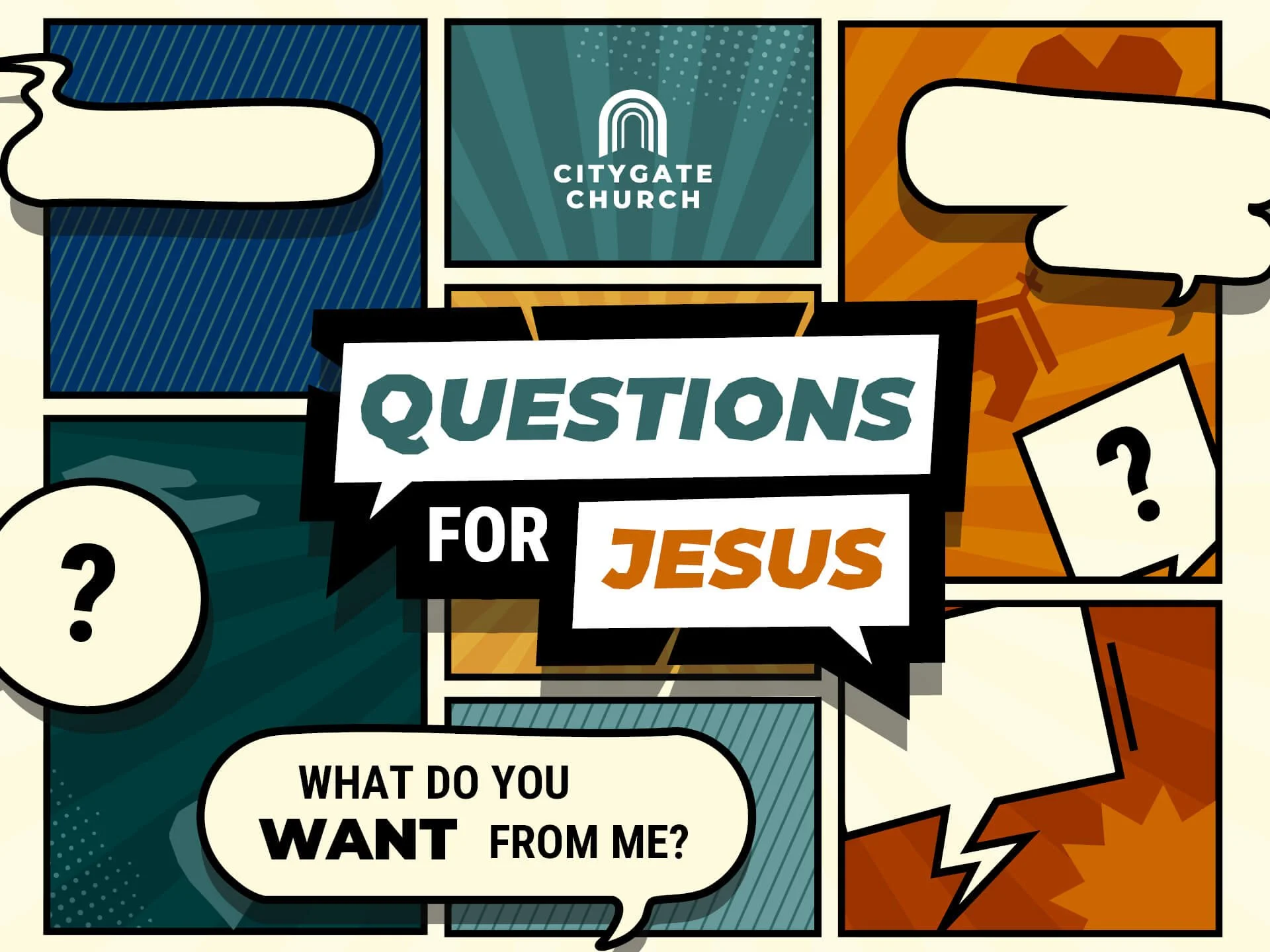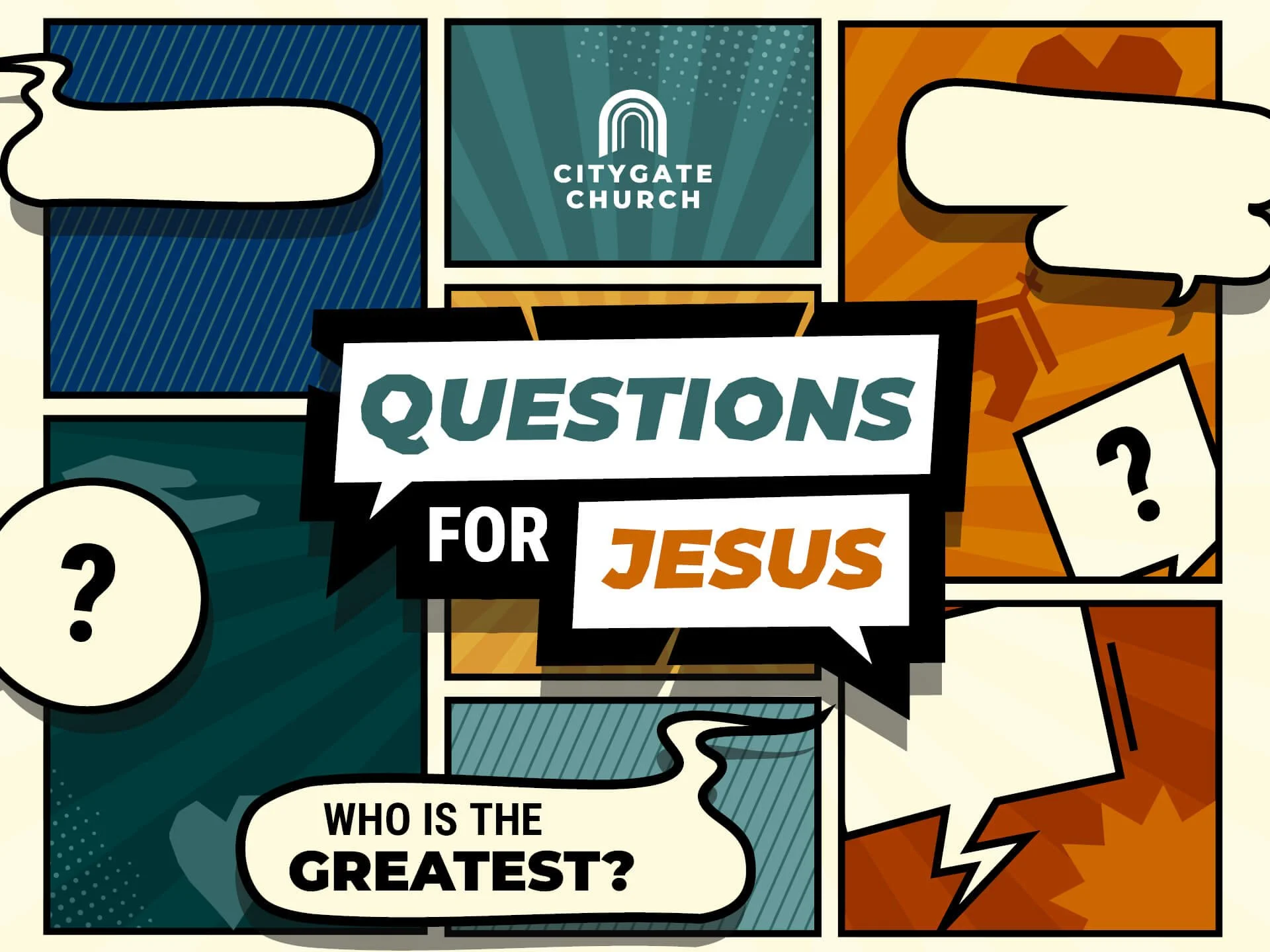Questions for Jesus | Why Do You Hang Out With Them?
About this series:
In each of the gospels we find Jesus asking questions of his disciples, the crowds and his opponents. And we also find Jesus being asked questions - by his disciples, the crowds and his opponents. Here, we will take 10 questions people asked of Jesus, the first from Luke’s gospel to set up the series and then the rest from Matthew’s gospel.
As well as working through the specific passages, we will aim to encourage people to consider what questions they would like to ask Jesus. The hope is that by looking at Matthew’s gospel in this way, we will see more clearly who Jesus is, be inspired to follow him and learn to be honest about our own questions as we grow to become more like him.
About this talk:
We all have people we tend to associate and people we don’t (or wouldn’t). That was certainly true in first century Judaism; especially represented by the group known as “tax collectors and sinners.” Max Lucado explains, ‘Combine the greed of an embezzling executive with the presumption of a hokey television evangelist. Throw in the audacity of an ambulance-chasing lawyer and the cowardice of a drive-by sniper. Stir in a pinch of a pimp’s morality, and finish it off with the drug peddler’s code of ethics - and what do you have? A first-century tax collector.’
In all three synoptic gospels this story follows the healing of the paralysed man who was lowered through a roof to Jesus (Matthew 8:1-8; Mark 2:1-12; Luke 5:17-26). Jesus has already called Peter, Andrew, James and John and will soon formally appoint twelve apostles (Matthew 10:1-4). He now calls Matthew to do what he said previously to the two sets of brothers - “Follow me” - and Matthew’s response appears to be just as immediate.
Matthew then proceeds to invite his new Rabbi, Jesus, to dinner at his house. Luke adds a couple of interesting details: the dinner was given in honour of Jesus and a large crowd of tax collectors and others were invited too. It would seem that Matthew, having set out as a follower of Jesus, has arranged a dinner with both Jesus and his many friends (disreputable people in the eyes of the Jewish leaders) in attendance together.
We can imagine the Pharisees have heard about the dinner through the Capernaum grapevine and have gone to witness for themselves if this could really be happening. Observing (or hearing about) the event, they complain (Luke 5:30) to Jesus’ disciples, “Why does your teacher eat (eat and drink, Luke 5:30) with tax collectors and sinners?” In first century Jewish culture, to eat and drink with someone was not simply to share a meal, but to associate with them, to accept them and to build relational bonds with them. ‘A meal, and all that goes into its preparation, can be considered synonymous with Jewish life. The act of sharing a meal preceding or following an event - whether cheerful or somber - is an act of love. It solidifies bonds of friendship, family, and community.’
The complaint of the Pharisees, then, was that Jesus - a supposed Rabbi who had been teaching and performing miracles - was now associating himself and fellowshipping with those who were so clearly unclean. Jesus’ reply has three parts:
“It is not the healthy who need a doctor, but those who are ill.” By making the most obvious of statements, Jesus is likening himself to a medical doctor. While they are able to make a physical diagnosis and bring physical relief to a patient, he is able to diagnose spiritual disease and provide the necessary treatment. Jesus is not excusing the spiritual disease among those who need him, but is claiming to be their answer.
“But go and learn what this means: ‘I desire mercy, not sacrifice.’” Jesus quotes Hosea 6:6 which includes a recurring refrain in the Old Testament (1 Samuel 15:22; Isaiah 1:11) and in Matthew’s gospel (cf. 12:7,33) - God does not ultimately desire sacrifices; he is after hearts. And any sacrifices that are not motivated by a heart that loves him are completely worthless.
“For I have not come to call the righteous, but sinners.” Jesus makes his mission clear. If he is the doctor, it is the ill who need him, sinners who recognise their need of the relief he offers. The truth is, of course, that “There is no-one righteous, not even one” (Romans 3:10) and that it is all who recognise their need of rescue who will go “home justified (declared righteous) before God” (Luke 18:14).
Just in this one chapter, Jesus has upset all their Messianic categories: he forgives sin, heals the sick, eats with tax collectors and sinners, raises the dead and drives out demons, with the crowd concluding “Nothing like this has ever been seen in Israel,” v 33. At the end of the short story about Zacchaeus, Jesus states that he came “to seek and to save the lost.” The last, the least and the lost are on his heart and are the focus of his mission. Which is the most wonderful news of all, meaning that no one is too far outside to be invited in; no one is so unhealthy that they cannot be made well; no one is so sinful that they cannot be made righteous.
Audio only
Questions for Discussion:
Read the Passage Together (5 mins):
Matthew 9:9–13
Ask for two volunteers to read the passage aloud – ideally in different Bible versions (e.g., NIV & NLT, or one in another heart language if appropriate).
Brief Context:
Matthew was a tax collector — seen as a traitor and morally corrupt.
Jesus not only calls him, but goes to dinner with other outcasts.
Religious leaders are offended by who Jesus welcomes.
Digging Into the Word (15 mins)
Discussion Questions (Choose 3–4 based on time):
Observation:
What stands out to you in this passage? What surprises or challenges you?
Cultural Insight:
In Jesus' day, eating with someone was a sign of acceptance.What are modern-day equivalents in your culture? Who you share meals with, visit at home, invite to church?
Who are today's 'tax collectors and sinners'?
Think in your workplace, community, or even church. Who do we struggle to welcome?
What does Jesus mean by: "I desire mercy, not sacrifice" (v13)?
How do we live out mercy over ritual or appearance?
Personal Reflection and Sharing (10 mins)
Prompt:
Think of someone in your life (at work, church, or community) who feels on the outside — maybe culturally, spiritually, or socially. What might it look like to "eat with them" in a Jesus-way this week? Allow a few people to share how they might apply this.
Prayer and Commitment (5 mins)
Prayer Ideas:
Thank Jesus for including us, despite our mess.
Confess where we've avoided or judged others.
Ask God to give us courage to reach out across boundaries — cultural, religious, moral, or social.












